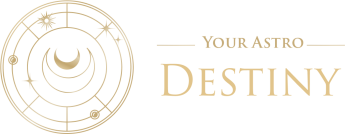In the realm of astrology, numerous celestial bodies play a dynamic role in impacting human lives—none more interesting to explore than Saturn. Known commonly amongst astrologers and astronomers for its extraordinary ring system, Saturn’s influence on the astrological landscape goes far beyond its physical attributes.
Body of Saturn
Prominent among the symbols that Saturn represents in astrology is discipline. As the harsh taskmaster among planets, it signifies strictness, hardships, and life challenges that motivate individuals to grow and eventually succeed. Cultures that practiced astrology throughout history rooted this portrayal in Saturn’s astronomical characteristics. Saturn, the farthest planet visible to the naked eye, orbits the Sun every 29.5 years, signifying the planet’s association with time and maturity. As a result, it becomes more influential as people grow older, designing a life path that presents challenges to overcome and lessons to learn.
Saturn in Each Zodiac Sign
When Saturn traverses the Zodiac circle, it brings about changes in each Zodiac sign. For instance, people born under its influence can demonstrate maturity and wisdom beyond their years, earning Saturn the name of ‘Father Time’.
When Saturn is present in Aries, it sharpens the individual’s will and leadership skills but may also introduce, impatience, stubbornness, and occasional frustration. In Taurus, it grants steadiness, persistence, and practicality, but also a relentless pursuit of materialistic gains. Saturn’s influence is felt differently in Gemini by presenting communication challenges which encourage the individual to focus and articulate their thoughts better.
Saturn’s influence in the water signs, such as Cancer, Scorpio, and Pisces, often results in emotional maturity and contraction. It tempers the emotional fluctuations in these signs and pushes them to develop emotional fortitude. On the other hand, in the air signs: Libra, Aquarius, and Gemini, Saturn promotes intellectuality but also develops a sense of detachment and aloofness.
Saturn’s Position and Its Importance in Your Birth Chart
In the field of astrology, the position of Saturn in one’s birth chart is incredibly important. By studying its location, astrologers can identify the areas of life where individuals face the most challenges or where they’ll need to exert the most effort. That said, not all experiences with Saturn are negative. Indeed, overcoming Saturnian challenges often results in the most profound personal growth.
When Saturn positions in the first house, it generally relates to self-identity and can add a sense of seriousness to the individual’s personality. In the second house, it presents challenges in the area of wealth and also shapes discipline and caution around financial management. When positioned in the third house, Saturn creates potential communication challenges, urging individuals to choose their words carefully.
Therefore, Saturn, with its planetary influence, can indeed present challenges in one’s life. However, it’s through overcoming these adversities that one can achieve personal growth, gain wisdom, and develop resilience.
Saturn Retrograde
Like other celestial bodies, Saturn, too, undergoes the process of retrogradation. During Saturn retrograde, people are urged to reassess their commitments, ambitions, and responsibilities. It’s a period of introspection and reassessing one’s past actions for future betterment. While it often feels like a time of paused progress, the retrograde period can be put to good use for planning, organizing, and setting realistic goals for the future.
In conclusion, Saturn, the mesmerizing ringed planet, has a profound impact on our astrological narrative. Its influence throws light on our life’s challenges, cultivates discipline, promotes self-restraint, and encourages maturity, making us seasoned travelers through the voyage of life. Although it might present some tough lessons, the changes it brings tend to have long-lasting effects that ultimately lead us towards success.
While astrological interpretations are not universally accepted, they can provide astral aficionados a unique perspective on understanding their life paths, personal growth, and the universe’s mystique itself.














